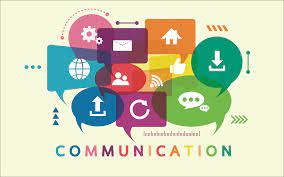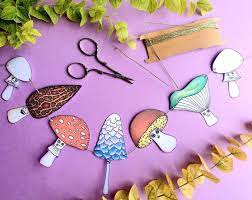
Your relationships with other people will never be perfect, but that doesn’t mean you can’t improve them. Poor communication skills are often to blame for issues in your life—at home, at work, and anywhere else you deal with other people on a regular basis.
Fortunately, there are a few ways you can learn to get better at communicating and thus improve your relationships with the people in your life.
Communication is an essential skill that can be applied to nearly every aspect of your life, from work and friendships to relationships and family.
If you want to improve your relationships or set yourself up for success in business or school, you’ll need to sharpen the way you communicate with others.
Fortunately, the following nine (9) tips on how to get better at communicating will help guide you through improving your communication skills in a variety of situations and make you an infinitely more relatable person in the process.
1) Be Genuine
Be genuine and make sure you’re listening. The key to good communication is being open minded, receptive and interested in the other person. If you can do that, you’ll have a much better chance of being effective in your communication with them. Another important aspect of good communication is being clear about what you want.
It's not always easy but knowing how you feel will help keep the conversation on track. One way to do this is by using statements instead of questions: I'm feeling frustrated right now instead of Do I seem upset? You'll find it easier if there are no assumptions and everyone has all the information they need to understand where each person stands.
2) Listen more, talk less
Communication is one of the most important skills you can develop. A lot of people think they're good communicators, but really, they just like talking a lot. The best way to get better at communicating is by listening more and talking less.
When you do this, your message will be more clear and concise, which will make it easier for the other person to understand what you mean. Talking less also gives the other person space to talk and express their thoughts on an issue.
You'll also find that when you listen more, you'll have plenty of time to prepare your own thoughts before speaking again!
3) Pay Attention To Nonverbal Communication
Nonverbal communication is the most important form of communication, and you should always pay attention to it. Nonverbal cues are sometimes even more important than the words that someone says.
For example, if someone slouches in their seat or has a faraway look in their eyes while they're talking to you, then they might not be as interested in what you have to say as they seem.
Similarly, if someone smiles while they're talking to you, they are probably feeling good about the conversation. Paying attention to these nonverbal cues can help you get better at understanding other people's thoughts and feelings without them having to tell you directly.
4) Take Emotions Out Of It
This is the simplest tip, but it can make a big difference in how you communicate. When someone says something that you don't like, try not to react emotionally or with anger.
Take a deep breath and think about the other person's point of view before responding.
It will help you stay calm and keep your thoughts clear. You'll also be able to choose what you want to say instead of being thrown off by anger. If emotions still get the better of you, take some time away from the conversation before continuing it.
5) Ask Questions
The best way to improve your communication skills is by asking questions. It shows that you are genuinely interested in what the other person has to say, and it tells them that you want them to be comfortable with the conversation.
Some good questions include:
- What do you think?
- How was your day?
- What would you like me to do differently? - How do you feel about this idea?
- What's on your mind right now?
- Is there anything I can help with?
6) Show Interest in What Others Say
You can improve your communication skills by showing an interest in what others are saying. This is a great way to start a conversation and get to know someone better. Plus, when you show your true self, people will be more willing to open up and share with you as well. Remember that communication is a two-way street so don’t forget to listen too!
It takes time to develop good communication skills. However, practicing these simple tips can make a huge difference in the long run!
7) Avoid Interruptions
Avoiding interruptions is key to communicating. When someone interrupts you while you're talking, it's hard to hear the full meaning of what they have said. It also creates frustration because you want to finish your thought and not be interrupted. It's important that the person talking feels like they are being heard, so don't interrupt them.
Another way people avoid interruptions is by using a talking stick or something similar, which allows only one person at a time the right to speak. Other ways to avoid interruptions include asking questions instead of making statements, listening actively rather than multitasking, eliminating distractions in the room, and taking turns in conversations.
8) Don't Worry About Being Polished or Perfect
Don't worry about being polished or perfect. You don't need to be a natural-born public speaker or media personality. Just do your best, and it will be enough.
If you're shy, try doing something that requires you to speak in public on a regular basis - like taking a class or joining Toastmasters International (a club for those who want to develop their speaking skills). The more you do it, the easier it becomes and the less frightened of public speaking you'll become.
9) Have a Strong Internal Compass
Having a strong internal compass can help with communication in a variety of ways. When you have a strong sense of self, it's easier for you to be confident and assertive. When you are confident and assertive, people will want to listen to what you have to say.
If people want to listen, they'll be less likely to interrupt or talk over you. This means that your communication skills improve because the other person is listening and not talking over you!























